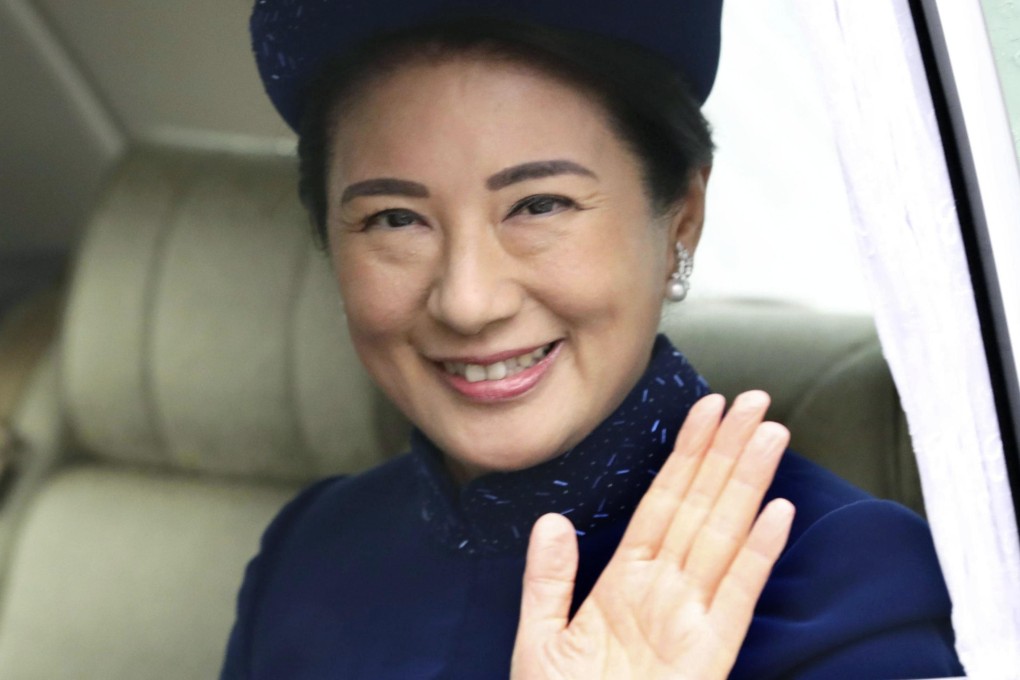Japan’s new empress is back in the spotlight as her husband prepares to ascend to the throne
- For the past 15 years, Crown Princess Masako has been battling a stress-related illness and often shied away from public engagements

Crown Princess Masako, wearing a stunning pale yellow kimono decorated with leaves of russet and gold, turned heads at Emperor Akihito’s autumn party at the Akasaka Imperial Gardens in central Tokyo on November 9.
A major event on the calendar of the imperial family, this year’s party was more significant than most as it marked the last time the emperor and Empress Michiko will attend, given his upcoming abdication from the Chrysanthemum Throne on April 30 next year.
The occasion was especially significant because Crown Princess Masako – who will become empress in just four months – stayed until the very end. For the last 15 years, she has been battling a stress-related illness and was either unable to attend or chose to slip away before the reception concluded.
Ten days after the party, the prince and princess went to a ceremony in the western Tokyo suburb of Chofu where they met local children involved in a tree-planting campaign. The princess spoke with a number of the children and thanked them for their work to protect the environment.
Two public engagements in such a short time suggest the princess is determined to overcome the issues that have plagued her as she prepares to take on the duties and responsibilities of an empress.